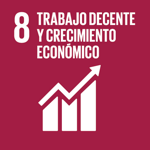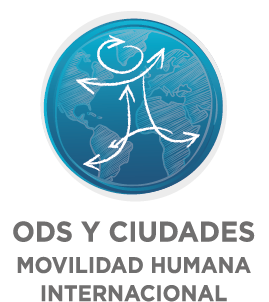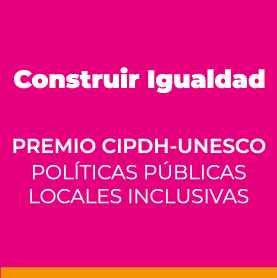Municipal Agreement No. 17 (Oct. 11, 2018) “Whereby the public policy of economic development of the Municipality of Sabaneta 2018–2030 with an emphasis on science, technology, and innovation is adopted”

- Region
- Latin America and the Caribbean
- Range of Demographic Size
- 50,000 to 99,999 inhabitants (small intermediate)

8.1 Sustain per capita economic growth in accordance with national circumstances and, in particular, at least 7 % gross domestic product growth per annum in the least developed countries.
8.2 Achieve higher levels of economic productivity through diversification, technological upgrading and innovation, including, among other things, through a focus on high-value added and labour-intensive sectors.
8.3 Promote development-oriented policies that support productive activities, decent job creation, entrepreneurship, creativity and innovation, and encourage the formalization and growth of micro-, small- and medium-sized enterprises, including through access to financial services.
8.4 Improve progressively, through 2030, global resource efficiency in consumption and production and endeavour to decouple economic growth from environmental degradation, in accordance with the 10-year framework of programmes on sustainable consumption and production, with developed countries taking the lead.
8.5 By 2030, achieve full and productive employment and decent work for all women and men, including for young people and persons with disabilities, and equal pay for work of equal value.
8.6 By 2020, substantially reduce the proportion of youth who are not employed and who do not attend studies or receive training.
8.7 Take immediate and effective measures to eradicate forced labour, end modern slavery and human trafficking and secure the prohibition and elimination of the worst forms of child labour, including recruitment and use of child soldiers, and by 2025 end child labour in all its forms.
8.8 Protect labour rights and promote safe and secure working environments for all workers, including migrant workers, in particular women migrants, and those in precarious employment.
8.9 By 2030, devise and implement policies to promote sustainable tourism that creates jobs and promotes local culture and products.
8.10 Strengthen the capacity of domestic financial institutions to encourage and expand access to banking, insurance and financial services for all.
8.a Increase Aid for Trade support for developing countries, in particular, least developed countries, including in through the Enhanced Integrated Framework for Trade-Related Technical Assistance to Least Developed Countries.
8.b By 2020, develop and operationalize a global strategy for the employment of youths and implement the Global Jobs Pact of the International Labour Organization.
Universal Declaration of Human Rights (UDHR).
UN Guiding Principles on Business and Human Rights.
International Covenant on Economic, Social and Cultural Rights (ICESCR).
Summary
The Public Policy of Economic Development of the Municipality of Sabaneta 2018–2030 with an Emphasis on Science, Technology, and Innovation, set out within the framework of Strategic Plan for Economic Development with an emphasis on Science, Technology, and Innovation (CTel), aims at contributing to the advancement of the economic development of the municipality, taking into account the processes of institutional and corporate integration for the consolidation of systemic competitiveness within the municipality of Sabaneta.
The object of this policy is to offer support to the companies in the municipality of Sabaneta as regards research, innovation, and development of new processes that allow for an economic reopening and a strengthening of production, with the implementation of sustainability through environmental good practices, a circular economy, a cleaner production process, the certification of green businesses, and the strengthening of the creative industry, thus optimizing resources, generating returns, and opening up brand-new markets and job opportunities for local Sabaneta citizens.
Implementation Date:
Start: 10 / 11 / 2018
End: End: Currently in force
Society in general
Financial/legal/technical assistence
Education and training
- Email: aten.ciudadano@sabaneta.gov.co
- Web: https://www.sabaneta.gov.co/
- Telephone: (Español) + 57 (604) 4406762 ext. 1408
- Social Network:
Instrumentos

8.1 Sustain per capita economic growth in accordance with national circumstances and, in particular, at least 7 % gross domestic product growth per annum in the least developed countries.
8.2 Achieve higher levels of economic productivity through diversification, technological upgrading and innovation, including, among other things, through a focus on high-value added and labour-intensive sectors.
8.3 Promote development-oriented policies that support productive activities, decent job creation, entrepreneurship, creativity and innovation, and encourage the formalization and growth of micro-, small- and medium-sized enterprises, including through access to financial services.
8.4 Improve progressively, through 2030, global resource efficiency in consumption and production and endeavour to decouple economic growth from environmental degradation, in accordance with the 10-year framework of programmes on sustainable consumption and production, with developed countries taking the lead.
8.5 By 2030, achieve full and productive employment and decent work for all women and men, including for young people and persons with disabilities, and equal pay for work of equal value.
8.6 By 2020, substantially reduce the proportion of youth who are not employed and who do not attend studies or receive training.
8.7 Take immediate and effective measures to eradicate forced labour, end modern slavery and human trafficking and secure the prohibition and elimination of the worst forms of child labour, including recruitment and use of child soldiers, and by 2025 end child labour in all its forms.
8.8 Protect labour rights and promote safe and secure working environments for all workers, including migrant workers, in particular women migrants, and those in precarious employment.
8.9 By 2030, devise and implement policies to promote sustainable tourism that creates jobs and promotes local culture and products.
8.10 Strengthen the capacity of domestic financial institutions to encourage and expand access to banking, insurance and financial services for all.
8.a Increase Aid for Trade support for developing countries, in particular, least developed countries, including in through the Enhanced Integrated Framework for Trade-Related Technical Assistance to Least Developed Countries.
8.b By 2020, develop and operationalize a global strategy for the employment of youths and implement the Global Jobs Pact of the International Labour Organization.
Universal Declaration of Human Rights (UDHR).
UN Guiding Principles on Business and Human Rights.
International Covenant on Economic, Social and Cultural Rights (ICESCR).
Location
- Region
- Latin America and the Caribbean
- Range of Demographic Size
- 50,000 to 99,999 inhabitants (small intermediate)
Contact details
- Email: aten.ciudadano@sabaneta.gov.co
- Web: https://www.sabaneta.gov.co/
- Telephone: (Español) + 57 (604) 4406762 ext. 1408
- Social network:



